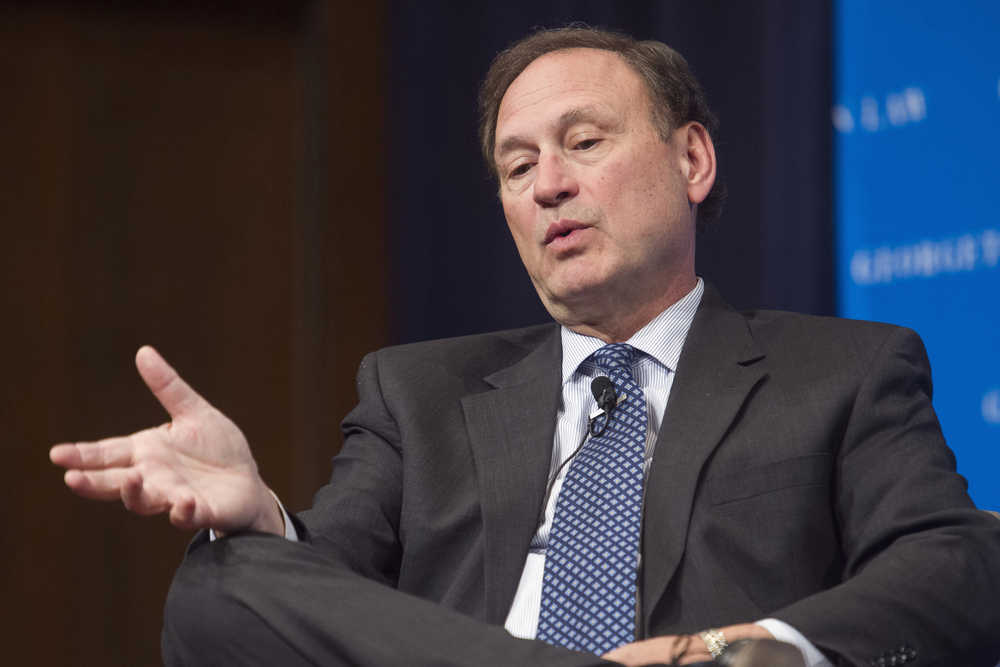WASHINGTON — Clandestine meetings. Soundproofed rooms. Top-secret instructions.
It sounds like the elements for a spy movie, but it’s become a hallmark of the undercover process for considering potential Supreme Court nominees.
The Obama administration is close to naming a replacement for Justice Antonin Scalia, who died last month and would have turned 80 on Friday. An announcement is expected soon, although whether a nominee can be confirmed by the Senate is in doubt. The Senate’s majority Republicans say the seat should be filled not by Obama, but by his successor.
If history is a guide, the White House will take elaborate precautions to make sure the choice for the lifetime seat is kept under wraps until the president is ready to reveal it.
Back in 2005, Samuel Alito was an appeals court judge based in New Jersey when he was summoned to Washington for a Saturday interview with President George W. Bush.
“I checked into a hotel downtown, and they said that I … should go to a particular corner at a particular time in the morning and wait for a Chrysler 300 to pull up, flash its headlights a couple of times, and then I was to get in this car,” he told Weekly Standard editor Bill Kristol in an interview last year.
“So I felt like a spy,” Alito said. “But they wanted to make sure that media didn’t get any word about people who were being interviewed.”
The meeting took place in the president’s private upstairs living quarters, away from the eyes of reporters and White House staff.
President Barack Obama’s search appears to be focused on a small group of appellate court judges with a history of bipartisan backing. The investigation into a candidate’s background is usually headed by high-level Justice Department officials and White House aides. It can take days, weeks or months, depending on how quickly White House wants to act. In some cases, the White House already has a short list of potential nominees ready to go.
That was the case with Clarence Thomas. He got a call from White House Counsel C. Boyden Gray on the same day Justice Thurgood Marshall announced his retirement. Soon, Thomas was standing across the street from the federal courthouse, where he was an appellate judge, waiting to catch a ride to the Justice Department.
“Within a few minutes, I was seated at a conference table in the Justice Department’s situation room, which is soundproofed so thickly that your words seem to die as soon as you say them out loud,” Thomas wrote in his memoir, “My Grandfather’s Son.”
Thomas says he was quizzed by Attorney General Richard Thornburgh and other senior Justice Department officials with questions such as who his favorite Supreme Court member was. His answer: Scalia.
A few days later, President George H.W. Bush called Thomas to invite him to the presidential retreat in Kennebunkport, Maine, to discuss the possibility of a high court nomination. Thomas took a government plane from Andrews Air Force base to Maine and was driven to the compound in a black SUV with heavily tinted windows.
One of the Secret Service agents “handed me a folded newspaper and asked me to hold it between my face and the window, just like a white-collar criminal who didn’t want his picture to be printed in the morning papers,” Thomas wrote. After meeting with the president, Bush presented Thomas as his choice for the court.
More recently, Sonia Sotomayor told C-SPAN that she got lost in a torrential rain storm in 2009 during the drive from New York City to Washington, D.C., the night before Obama was set to announce her as his first high court pick. She had asked a friend to drive her after being told the White House “would prefer that I didn’t take a plane.”
“We got lost, and all of a sudden I’m in Virginia,” she said.
Her friend stopped the car and, with some phone guidance from a former law clerk, they made it to the White House in time.

